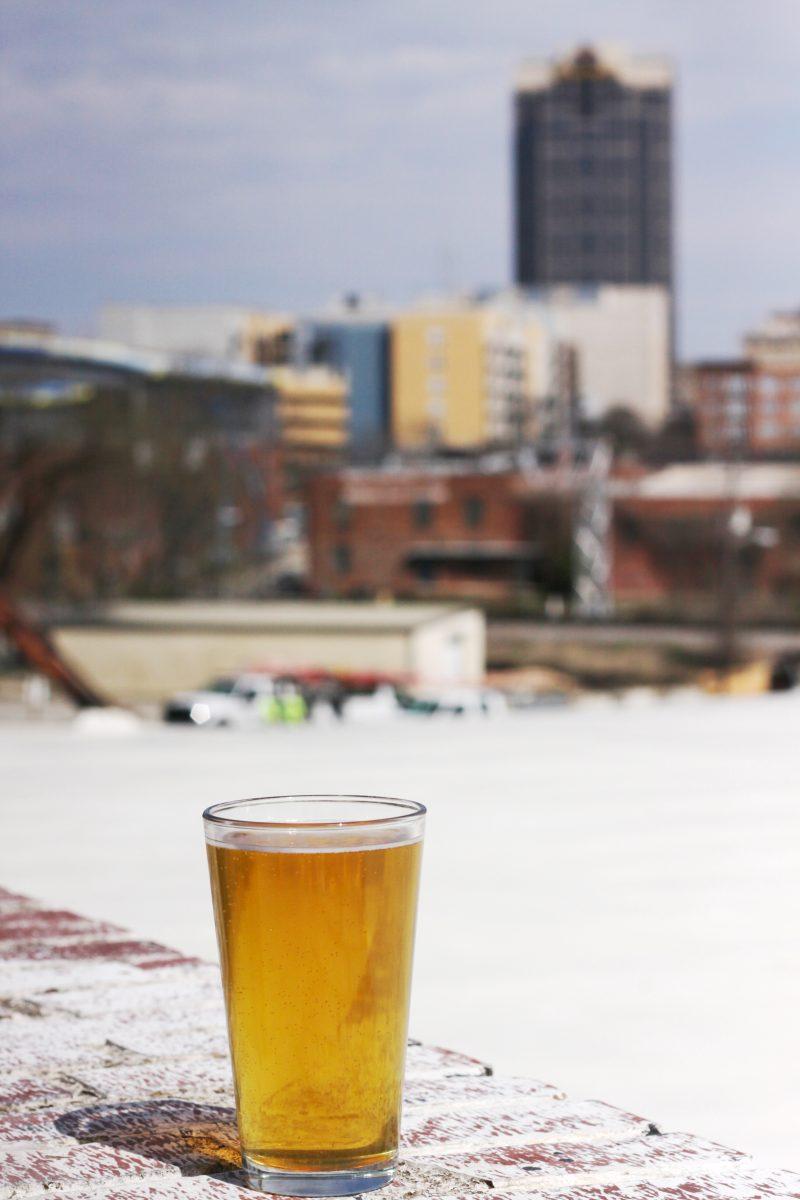
Photo by Joannah Irvin.
Endless Summer Ale from Boylan Bridge Brewpub.
For a long time now, Ashe ville has been lauded as the “beer capital” of North Caro lina. Asheville’s strong craft beer industry and distinc tive culture definitely make it a hotspot for those looking for exceptional brews. In re cent years, however, another North Carolina city has ex ploded in craft-beer growth and risen to the challenge of overthrowing Asheville for its lofty position.
I’ll give you a hint: It’s Ra leigh.
The Raleigh and Triangle craft-beer scene has been booming in the past few years, and I recently got the opportunity to talk with a few area brewers about their opinions regarding the area’s growth. One of the prevailing opinions is the Raleigh area has a fantastic beer scene, es pecially considering it wasn’t long ago when the industry didn’t exist here at all.
“Nineteen years ago, you literally had to explain what a craft beer was to someone,” said Mark Heath, owner of and brewer at the 19-year-old Carolina Brewing Company. “Over the past three to five years, we’ve seen this explo sion of breweries. A lot of it stemmed around North Car olina changing their laws to allow beer over 6 percent [al cohol content]. That’s when you really saw the growth start.”
The growth of both the Ra leigh and Asheville regions has exploded during the past few years, and it doesn’t ap pear to be stopping any time soon.
“We have 16 breweries in Wake County,” said Tyler Cox, head brewer at Gizmo. “This is the most highly con centrated brewing area in the entire state. Asheville consid ers themselves as having 14 or 15, maybe 16, breweries, but it’s Greater Asheville. It’s not just the city limit proper, it’s going all the way out to the outskirts. In terms of con centration of breweries, we are far and away, in this area, the greatest concentration of beer in the state.”
The culture of the Raleigh area is also a great differentia tor when it comes to compar ing the two cities directly.
“Raleigh’s like a melting pot for pretty much the entire country,” said Bryan Lord shaw, a brewer from Aviator Brewing Company. “I see a lot of people from all over coming here. They’re bring ing their own flavors, and I feel like that’s contributing to the beer culture here as well. Asheville has kind of a sub-culture in itself.”
Another interesting thing to note about the beer culture is that these breweries don’t seem particularly threatened by the growth of the indus try. Though many industries would take pause at their competition tripling during the past five years, the mi crobrewery scene seems more like a community.
“Honestly, if every brewery that opened this year could just stay open and have a good following and remain profit able, that’d be good enough for me,” said Joseph Wheel er, a brewer from Lonerider Brewery. “I think the mar ket’s about where it needs to be with variety and styles, but I definitely don’t want to see any of these breweries go away.”
With an industry growing as fast as this, people may be gin to wonder if this explo sion will burn out and crash before too long. Is the craft-beer movement just a tempo rary fad, or is it here to stay?
“People ask about this bubble. I don’t think there’s anything like that. I think ba sically, there’s room for more breweries as long as there’s good beer,” Adam Eckhardt, co-founder of Crank Arm Brewing, said.
This sentiment extends to Raleigh’s new competition with Asheville. The Raleigh and Triangle-area brewer ies aren’t looking to replace Asheville, they’re just look ing to introduce our city to respectable, well-made craft beers.
“I’d prefer for people to look at it less as beer city, but rather as Beer State USA,” Eckhardt said.